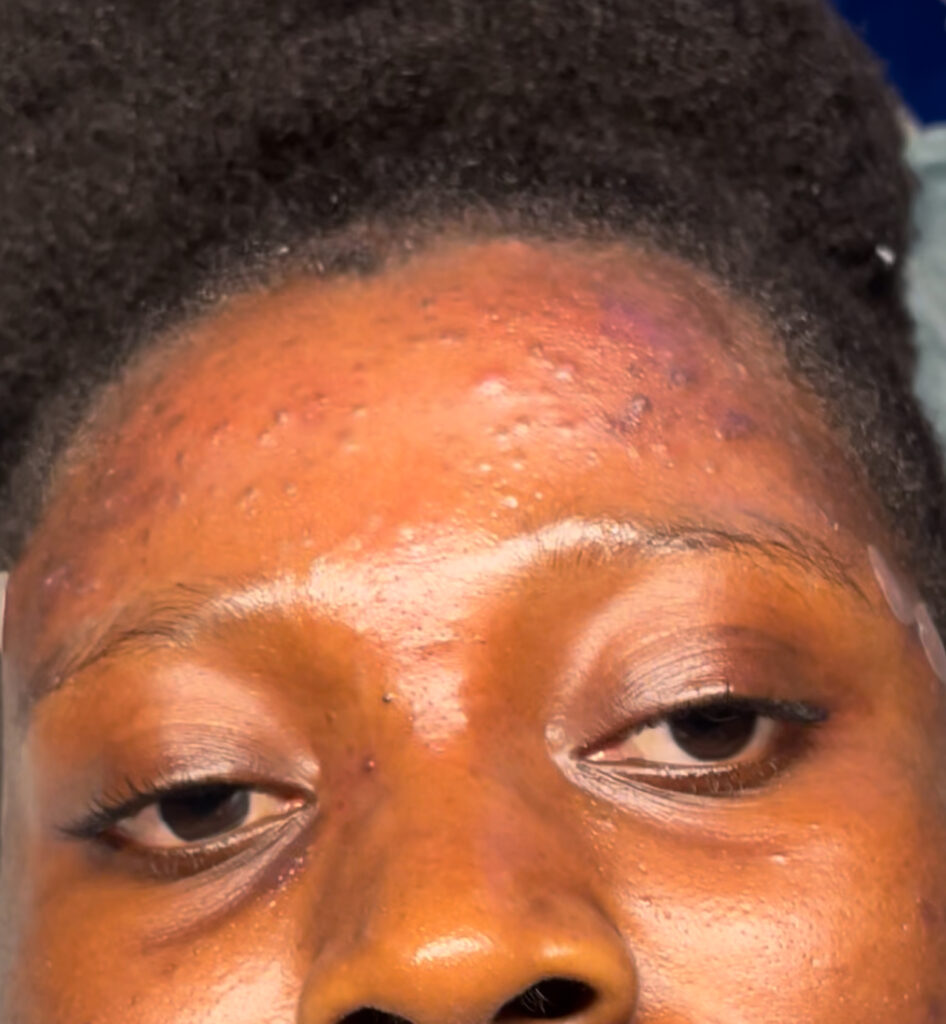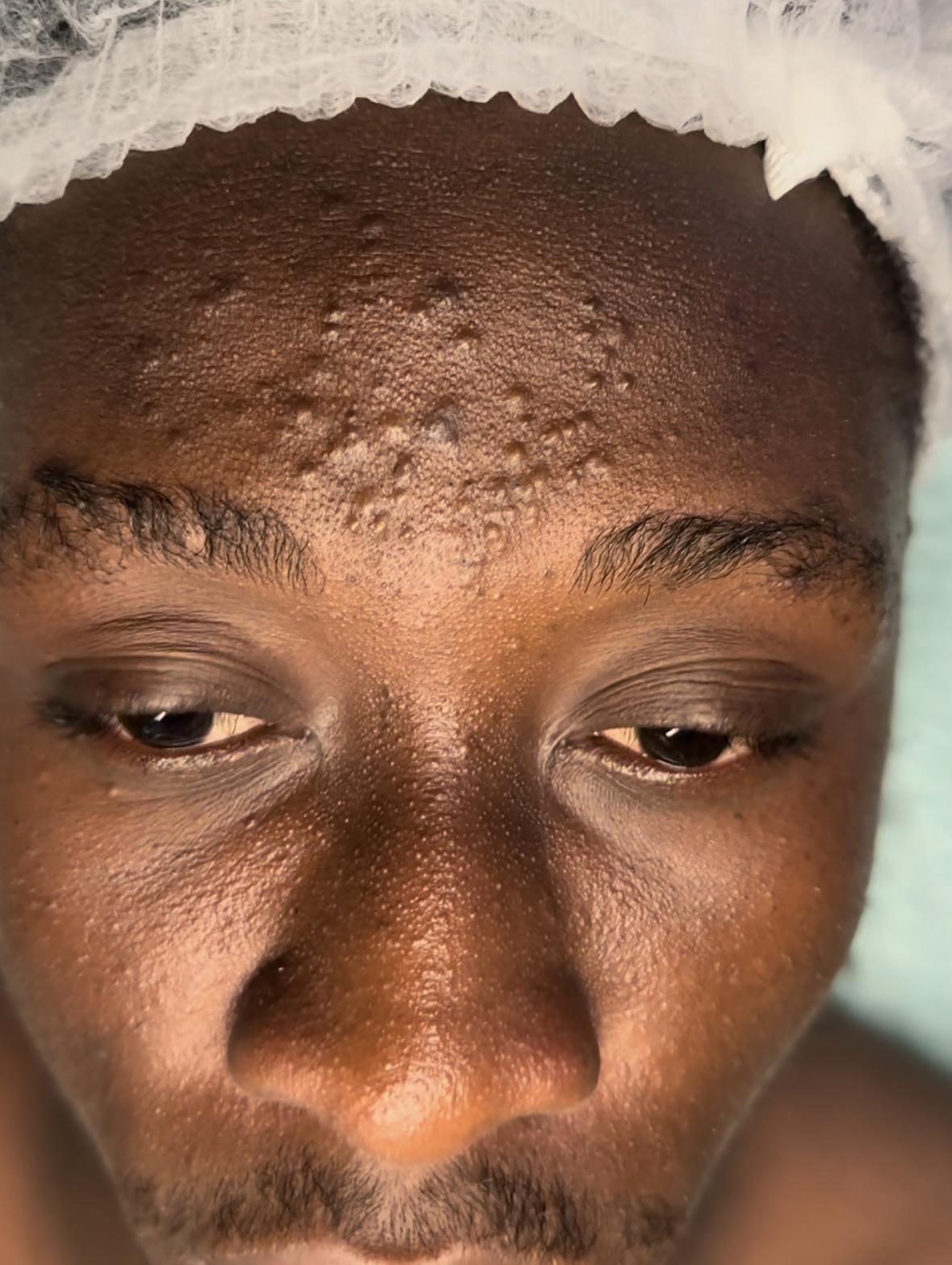Are you struggling with tiny, rough bumps on your forehead that just won’t go away? You’re not alone. Many people—especially those with melanin-rich skin—deal with a condition known as comedonal acne, often mistaken for rashes or allergic reactions.
In this article, we’ll break down what causes this condition, how to treat it, and tips to keep it from coming back.
What Does It Look Like?

In most cases, forehead acne appears as:
- Small, flesh-colored or slightly dark bumps
- Non-inflamed (not red or painful)
- Clustered in the T-zone (forehead and nose)
- Accompanied by oily skin or shine
Common Causes of Forehead Acne
1. Excess Oil Production
Sebaceous glands can become overactive, especially in hot climates, leading to clogged pores.
2. Dead Skin Cell Buildup
Without proper exfoliation, dead cells mix with oil and block the pores, forming comedones.
3. Fungal Acne (Malassezia Folliculitis)
Often misdiagnosed, this condition thrives in humid environments like most African countries and appears very similar to comedonal acne.
4. Hair and Skincare Products
Heavy oils, butters, and certain silicones in hair or face products can clog pores, especially around the forehead.
5. Hormonal Changes
Hormonal fluctuations (especially androgens) during puberty or adulthood can trigger excess oil and breakouts.
6. Sweat and Friction
Wearing caps, helmets, or durags can trap sweat and bacteria against the skin.
Treatment Options
- At-Home Skincare:
- Cleanser: Use a gentle foaming cleanser twice daily. The Nyon Derma Acne Free face Wash is the best option as it contains 2% Salicylic Acid which helps clear clogged pores.
- Treatment: Try a retinoid (like Adapalene) or Acne Free cream with zinc oxide and natural botanicals.
- Hydration: Use a non-comedogenic serum moisturizer with Niacinamide.
- SPF: Daily sun protection is a must to prevent dark spots.
2. Professional Treatments at Nyon Derma:
• Chemical Peels (Salicylic or Mandelic Acid)
• Microdermabrasion or Enzyme Facials
• LED Light Therapy (Blue Light)
• Manual Extractions by our licensed estheticians
For Fungal Acne (If Diagnosed):
• Use Ketoconazole cleanser/ shampoo as a face wash (2–3x weekly)
• Avoid fatty acids and oils like coconut oil or shea butter
Prevention Tips
- Stick to non-comedogenic products (check your labels!)
- Wash your face after workouts or sweating
- Change pillowcases and towels weekly
- Avoid touching your forehead often
- Stay hydrated and eat a balanced diet
When to Seek Professional Help
If your skin doesn’t improve after 6–8 weeks of using over-the-counter products, or you notice spreading, discomfort, or scarring, it’s time to visit a professional.
At Nyon Derma, we specialize in treating acne and textured skin on African skin tones with safe, targeted solutions. Whether it’s hormonal acne, fungal breakouts, or clogged pores, we can help.
📱 Book a an appointment with our skincare specialists.

